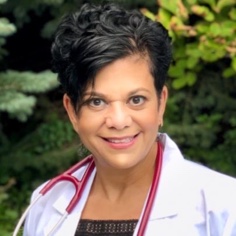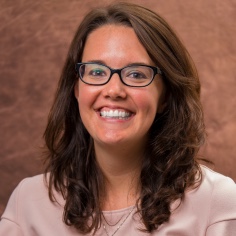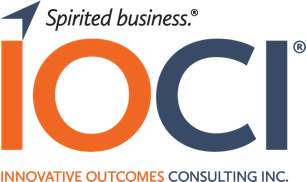
At first glance, 2020 is a dumpster fire for success. The headlines are packed with everyone from rock star business moguls like Jeffrey Katzenberg, former chairman of Walt Disney Studios, saying COVID-19 is responsible for entertainment app Quibi’s failure to hit its launch projections, to the local restaurant down the street closing its doors for lack of supplies and customers.
But take a second look and the fire is merely a birthday candle flame. Just as in the Great Recession, which spawned startups after talented people were cut from the workplace, Americans are finding innovative ways to build careers that provide more than just income.
According to a report from the U.S. Chamber of Commerce, 2020 is not a bad time at all to get into many fields: cleaning services, delivery services, drive-in movie theaters, grocery stores, liquor and wine stores, meal prep delivery services, game makers and sellers, fitness equipment, landscaping and yard care companies, bread baking, coffee subscription companies, gardening suppliers, telehealth and tutoring.
And that’s the short list. A growing acceptance for online purchases broadens this field even more. The good news? The No. 1 reason startups fail is because there was no actual market need for the service – a condition that may have just flown out the window.
The picture grows still brighter: American Express’s annual report on women-owned businesses put the number of start-ups in this country at 1,821 per day back in 2018. Forty-four percent of women-owned businesses are controlled by minorities. And revenues over $1 million at these businesses increased 46% compared to 12% for all U.S. businesses in the last decade.
But even pre-COVID-19, startups failed at a 92% rate, says policy advisor firm Start-up Genome.
So the reward potential is great, but the risk was real for Dr. Marlene Wust-Smith and Pam Ferman, who decided in November 2019 to produce a publication that focuses on physicians’ personal experiences in the medical field and shores up their flagging enthusiasm by breaking down communication silos between patients and doctors.
Physician Outlook hit subscribers’ mailboxes in late January 2020 – just before the medical community was slammed with its biggest challenge in the past 100 years. It also blew a hole the size of an iceberg in Dr. Wust-Smith and Ferman’s vision: How would they attract advertising for destinations, personal growth, luxury items now? Was this the right time to ask physicians to engage with one more channel?
By turning to IOCI, they found business coaching that not only helped them sort out the steps to stay on top of the new processes and the steps they needed to take to survive, but the emotional support to stay calm and focused as well.
We sat down with Wust-Smith and Ferman to learn about their experience.


What was the driving force behind starting Physician Outlook? What need were you addressing?
Wust-Smith: The need was to restore the physician-patient relationship to what it was initially intended, which is to keep people healthy, address preventable illnesses and treat patients when they’re ill.
As a system, we’ve become more and more depersonalized and physicians are getting frustrated and are looking to leave medicine. They’re burned out by electronic health records and people looking at their computers instead of paying attention to them. I knew there were a lot of disgruntled physicians and unhappy patients, and I knew that a large community existed online that wanted to take their system back. I realized we needed to take a lead in that role, but we were missing about 80% of physicians who choose not to have an online presence. So who I was trying to reach with the print magazine is the generation – rather young, old or retiring – that still has a lot to say.
Most doctors used to practice until the day they died, and they maintained sharp minds, so we started thinking about how to reach them. Maybe they got out of their employment model because they just couldn’t stand it anymore, or they just couldn’t afford to stay open as a private practice, or they didn’t want to see corporations take over the profession.
We wanted to create a publication that would educate, empower and enlighten, and provide sort of a pat on the back to make them feel good about themselves and highlight the interesting work they’re doing. Physicians are often multitalented, and we wanted to share things like the art they’re creating, the feel-good efforts they’re involved in.
Advocacy is my ultimate goal for the magazine, but we don’t need another call your Senator, do this, do that publication. I wanted it to be light reading because doctors are used to reading journals; and I wanted a feel of something that educates, but then points you online to safe sources of similar grassroots organizations where physicians can speak up about health care issues.
Physicians are leaders in medicine but have never had a proprietary publication or platform to voice their unique and uncensored perspectives and opinions about the health care they provide.
The Physician Outlook magazine appeals to physicians of all ages and provides a forum that is simultaneously informative, entertaining and educational.
How would you sum up your business in a short sentence?
Wust-Smith: Physician Outlook exists to educate, empower, enlighten and inspire, and to provide tools to break down the silos between physicians and patients.
What drew you to IOCI and CEO Marialane Schultz who provided business coaching for your startup? What support did she provide along the way to launch your business?
Wust-Smith: First off, she listened! Normally, Marialane provides one-on-one coaching, but she was willing to adapt and work with both Pam and me at the same time.
I also needed someone who was detail oriented so I didn’t self-sabotage. I knew a business coach would be tremendous, but I also knew that I wouldn’t be disciplined enough to follow through on things if I wasn’t able to work with my business partner.
It was a unique request, and Marialane was hesitant because she usually works one-on-one with clients. I was so impressed that she was willing to understand my learning style and adapted, even though that was not her traditional way to coach.
Once we got started, Marialane listened carefully, absorbed the scope of the project and had amazing suggestions. It was refreshing to have someone from outside the medical field who could provide advice that was different from what we would get if we stayed within the world of medicine.
Ferman: With a startup, our daily to-do list might have 30 different items. Marialane was great about putting together goals and timelines that were very action oriented. For example, she would say, by the end of this meeting, this is what we want to cover. And then by the time we meet next, this is what I want you to do.
For someone who is trying to put one foot in front of the other and make progress on a startup, having small goals like that coming from someone with a business mindset was really impactful. When you’re trying to make progress during such a chaotic time, having small goals and getting specific direction made all the difference.
What were the key challenges and barriers you had to overcome?
Wust-Smith: Being employed full time in other fields was a big challenge. How do we start something when we have other obligations?
Understanding how business works and having professional support in terms of a marketing plan from Marialane made all the difference. We launched with almost no professional help other than Marialane because she gave us all the tools to create a vision and a plan.
Of course, all of that changed with COVID-19. We had planned to include advertising for luxury items, medical education, destinations and personal growth. And the ads were going to be as interesting as the content, much in the way that an airline magazine would be. But once the pandemic happened, there was no advertising. That was a huge challenge.
Still, we think there will be a time when everyone wants to get away from videoconferencing tools and will want to hold a print publication. We want to be that publication.
What are three words that best describe Marialane, and what does working with her look like?
Ferman: Engaging. Professional. Organized.
Wust-Smith: I can say that I always looked forward to our calls. As Pam can tell you, I tend to try and weasel out of calls and meetings, but with Marialane, I was always excited to meet with her and I never wanted to disappoint her.
She was always flexible if we didn’t get to an assignment or needed to adjust our timing. And she was always client friendly; I really just can’t say enough about how supportive she was.
How would you define the value that resulted from your work with IOCI and how it benefited you and your firm?
Wust-Smith: The value is that we got business coaching that included assistance with a professional business plan, connections to IT, connections to an advertising agency and to a host of other contacts. Marialane was like a one-stop shop, and she adapted with us as the COVID-19 outbreak happened. She was also part counselor because of the family connections within the business. She did almost a psychoanalysis around what I was getting into to be sure I understood the dynamics.
Ferman: When you’re putting together a business and you’re trying to understand what it is you need and what things you can wait on, you realize there can be fees for consulting with so many professionals. Marialane always had our best interests at heart, and she provided advice or recommendations or action steps that crossed into many fields. It was great to get advice from someone who really sees the growth and potential of your business.
Can you fill in the blanks in the following sentence to provide a sense of how collaborating with Marialane helped you solve a particular problem or challenge?
IOCI helped Physician Outlook overcome__________, develop skills in ________, that resulted in ____________.
Wust-Smith: IOCI helped Physician Outlook overcome our lack of experience in publishing, develop skills in creating a business plan and setting a timeline, that resulted in getting the product to market.
What’s one more specific example of how the coaching you received helped you tackle an unexpected challenge?
Wust-Smith: Our website was custom built by an agency in Madrid, Spain, and we ran into some glitches with it. There were a lot of growing pains, and I didn’t have time to learn how to code or become on expert on how websites work.
Marialane has a team around her, and she connected us with a firm that directed us on next steps and gave us pointers to help ensure the site had the desired impact. We wouldn’t be where we are without Marialane’s help.
Thinking of starting a business?
Let IOCI help you build entrepreneurial muscle by assessing your strengths, where you need to build capability, and how to create a plan that promotes business success.

